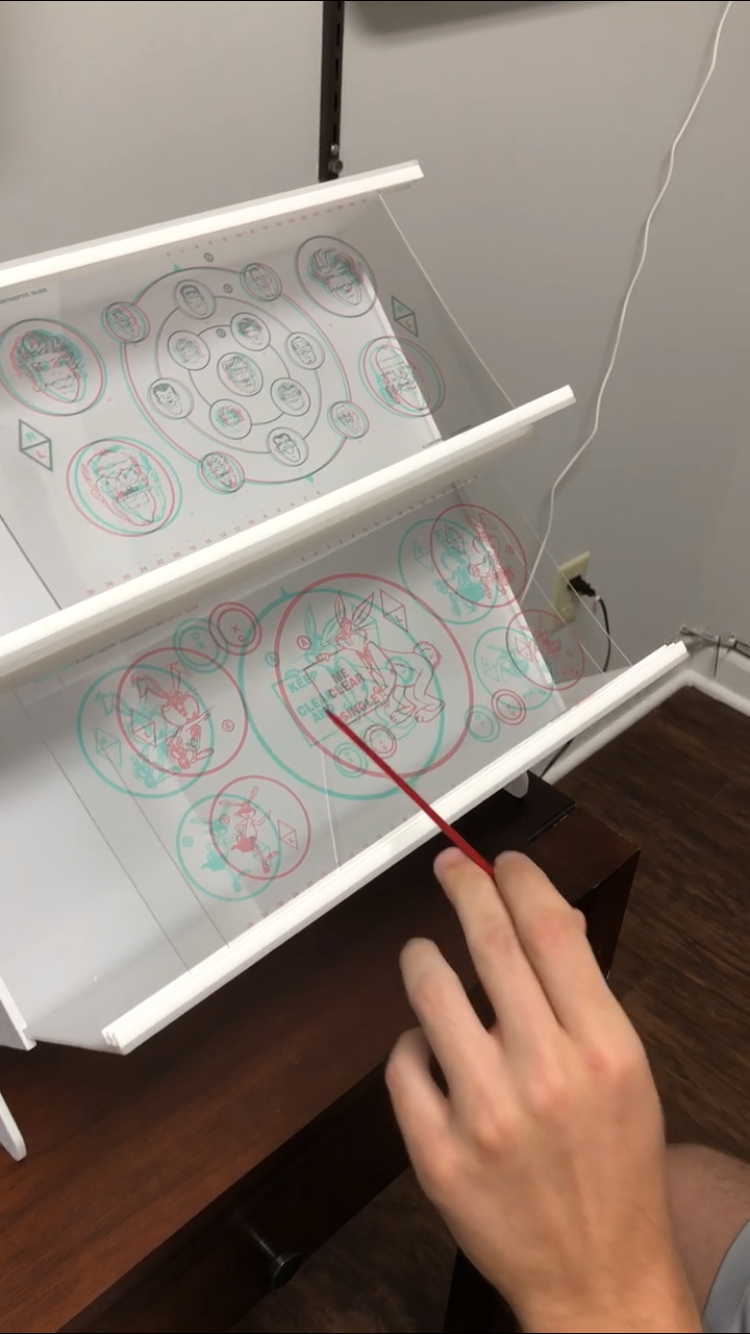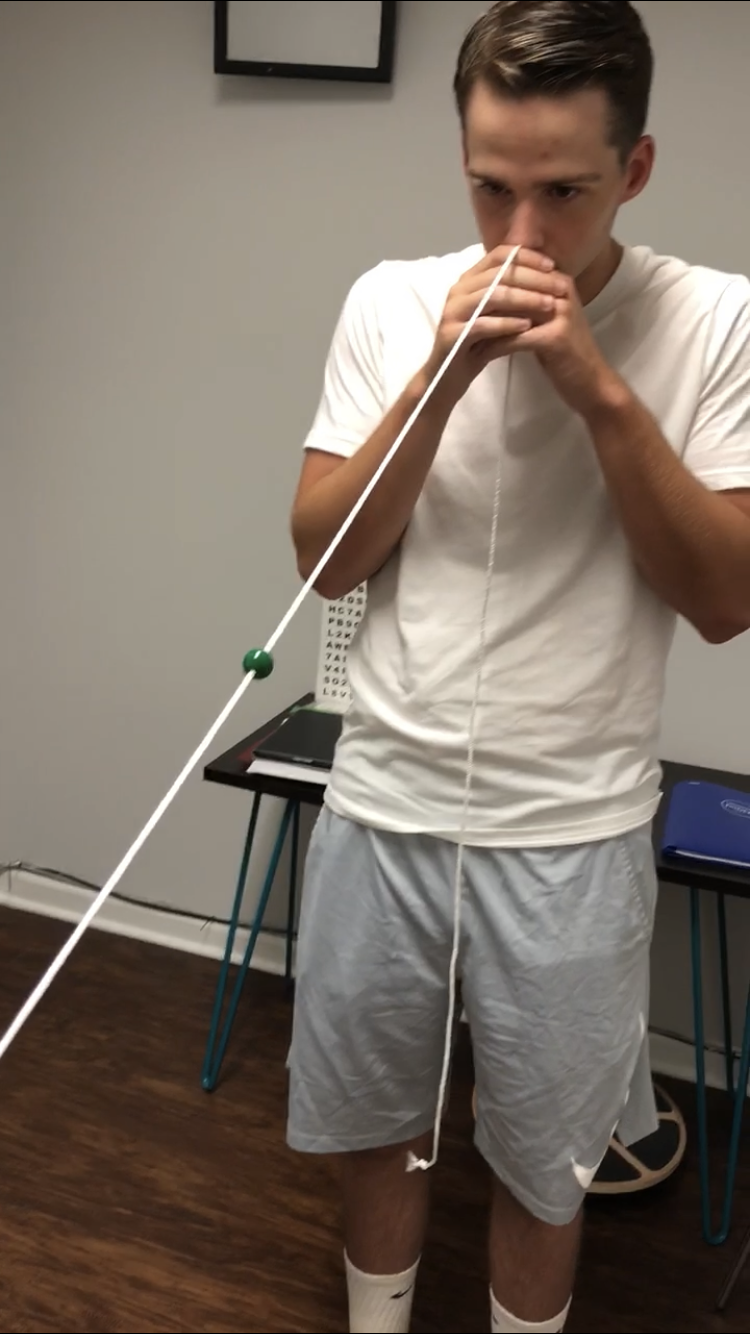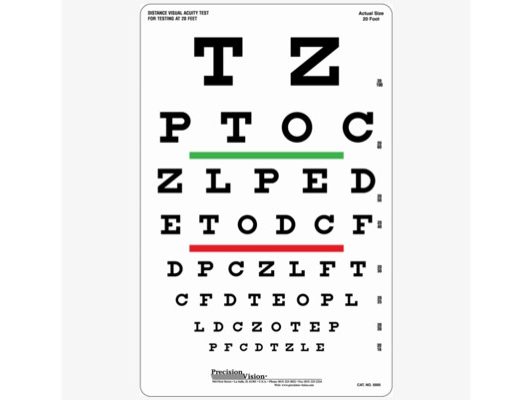
Vision is a complex process that involves two eyes, six different eye muscles, and a brain that has to process all of that information you take in from your world every second. If anything goes wrong in this complex process you won’t have very good vision.
Now, back to the eye chart. I don’t have anything against the eye chart, I simply wanted to use it as an example to make this point. I think school screenings, and screenings that your child has at the pediatrician are great. If it weren’t for those screenings, some kids would probably never have their vision tested, and those screenings do sometimes reveal some serious vision issues. I’m just saying that, in general, most kids need a more comprehensive exam to make sure that their eyes can handle the hard work they have to do in school every day.
To understand this a bit better, try to imagine everything that your child’s eyes have to do when taking notes in class. Close your eyes and take yourself back to the classroom for a minute and try to visualize this process.
- Your history teacher has just written a chronological account of the American Revolution on the board and explains that her printer wasn’t working so she expects you to write these important dates down and memorize them for the next test.
- You get your notebook out and start copying. The first. and most obvious, thing you have to do is actually see the letters clearly on the board and on your notebook (this is where vision screenings are important), so hopefully you didn’t forget your glasses or contacts today.
- As you take notes your eyes fixate on the first sentence and track across the board reading the sentence and taking as much into your visual memory as you can. After your visual memory is full you shift your focus back to your notebook and begin writing the words. In order to shift your focus from the board to your notebook your eye muscles had to converge inward, and the focusing muscles on the inside of your eyes (kind of like a camera lens) have to engage and bring the up close words into focus. You then have to track your eyes across the page as you write the words out. After you write the first line, you look back up to the board and your eyes diverge and release their up close focus and localize the next sentence you are to copy and repeat the process.
As you can see, your eyes just did a lot of work. It turns out that 1 in 4 children actually have some sort of vision issue that can hinder their learning.
So, what are some red flags that you or your child’s teacher would see that would indicate your child has a vision problem?
- Complaining of headaches or eye strain after reading or doing near tasks.
- Feeling like the words on the page are moving.
- Skipping words or re-reading lines.
- Double Vision.
- Feeling nauseous after reading or riding in the car.
- Poor Handwriting.
- Behavior issues, especially when reading or school work is involved.
If your child has any of these specific complaints, be sure to take them to an eye doctor for a comprehensive exam. During the exam, your doctor will determine if your child needs a prescription for glasses, and should also make sure that their eye muscles are functioning properly.
If it turns out that your child needs more than just glasses to help them see, your doctor should refer you to a specialist. Depending on the severity of the issue you may see a Developmental Optometrist for Vision Therapy or a Pediatric Ophthalmologist.
At your appointment with a Developmental Optometrist (like me), you will receive a comprehensive exam that includes a very thorough exam of the eye muscles. The Doctor will simulate many real world situations that your child’s eyes deal with daily to see if they can hold up to the stress.
To understand this better, think about when you go to the Cardiologist. To make sure your heart is functioning properly, they will likely put you on a treadmill to see how your heart performs in response to stress.

This is the same thing that a Developmental Optometrist does to test your child’s eye muscles. If the exam reveals that your child needs help, your Optometrist may recommend Vision Therapy.
Vision Therapy involves a variety of exercises that are aimed at helping your child gain better control of their eyes, so that they can eliminate many of the symptoms that they were having before. This usually involves weekly therapy sessions in office and daily at home exercises.
With commitment and consistency, vision therapy can be very successful at eliminating the visual symptoms that are affecting your child’s learning.

If you are concerned that your child may have a vision problem, you can go to my website and fill out the Children’s Vision Assessment listed in this link.
I am always available for questions, so if you are concerned about anything about your child’s eye health, feel free to send me an email at colliervillevision@gmail.com You can also reach me on my social media accounts on Instagram and Facebook.
About the Author:
Dr. Walley is a native of Madison, MS. He received his B.S. in Microbiology in 2004 from Mississippi State University. In 2008 he received his doctorate of Optometry from the Southern College of Optometry in Memphis. He lives in Collierville and is married with two children and two dogs. He enjoys spending his free time with his family, playing golf, exercising, and spending time outdoors. His also enjoys Mississippi State sports and New Orleans Saints football. Dr. Walley also loves to cook and share recipes with his patients.








